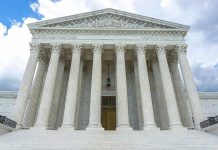
(NewsInsights.org) – Florida’s six-week abortion ban, signed into law last year by Governor Ron DeSantis (R), took effect on May 1. The new statute came after a prolonged court fight. Experts believe it will herald significant changes for women throughout the southern US who previously sought abortions in the state.
In 2022, Planned Parenthood and several co-petitioners filed a lawsuit against Florida’s 15-week abortion ban, HB 5. Lawmakers enacted the measure after the Supreme Court overturned Roe v Wade in mid-2022.
On April 1, the Florida Supreme Court (SCOFL) ruled against the plaintiffs, holding that Planned Parenthood failed to prove any basis to invalidate the statute using the state’s constitutional Privacy Clause.
The SCOFL upheld an appellate court’s decision to revoke an injunction initially granted by a trial court. It also cleared the path to implement the six-week ban on May 1. The new law, entitled “The Heartbeat Protection Act,” replaced the 15-week abortion ban. It allows exceptions for cases of rape or incest or to save the mother’s life.
Florida joined South Carolina, Georgia, and Texas in their six-week abortion bans. Other surrounding states, including Alabama, Mississippi, Louisiana, Oklahoma, Arkansas, and Tennessee, have implemented total abortion bans. Some states don’t provide exceptions for cases of rape or incest. North Carolina enacted a 12-week abortion ban.
However, before changing its law, Florida had the most lenient abortion laws in the southeast US. That fact prompted women seeking abortions to travel to the Sunshine State from the entire region after June 2022.
Florida documented the following data showing the growth of out-of-state women seeking abortions:
- 2022: 82,581 total; 6726 provided to women from out of state, a little over 8%
- 2023: 84,052 total; 7736 sought by women from other states, more than 9.2%
- 2024 to date: 14,735 total; 1316 performed on women residing outside Florida, about 8.9%
Since Florida’s six-week ban went into effect, the nearest destinations for women from the southeast region seeking abortions after 12 weeks include Virginia, Delaware, Maryland, Illinois, or Kansas.
While the SCOFL ruling scored an important victory for pro-life advocates, it also opened the door, allowing opponents to propose a state constitutional amendment on the November ballot. The measure, which will appear as Amendment 4 on the general election ballot, will need 60 percent of Florida voters’ support to pass.
Copyright 2024, NewsInsights.org

















